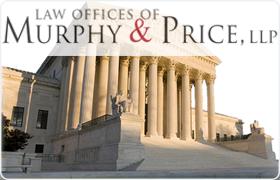Sharptown White Collar Crime Lawyer, Maryland, page 5
Sponsored Law Firm
-
 x
x

Click For More Info:
-
Murphy & Price, LLP
12216 Ocean Gateway Suite 500 Ocean City, Maryland 21842» view mapFederal & State Criminal Defense, DUI/DWI When Cases Are Serious, Look to Us
If you are under criminal investigation, or have been charged with a serious crime, we have lawyers ready and able to prevent loss of your freedom and reputation.
800-871-0830
Not enough matches for Sharptown White Collar Crime lawyer.
Below are all Sharptown Criminal lawyers.
Scott Grove Patterson
Other, Landlord-Tenant, Criminal, Traffic
Status: In Good Standing Licensed: 53 Years
Philip Thomas Cronan
Family Law, Divorce & Family Law, Criminal, Accident & Injury
Status: In Good Standing

 J. Dennis Murphy Ocean City, MD
J. Dennis Murphy Ocean City, MD About UsMurphy & Price, LLP
About UsMurphy & Price, LLP FAQ'sCriminal Defense
FAQ'sCriminal Defense
